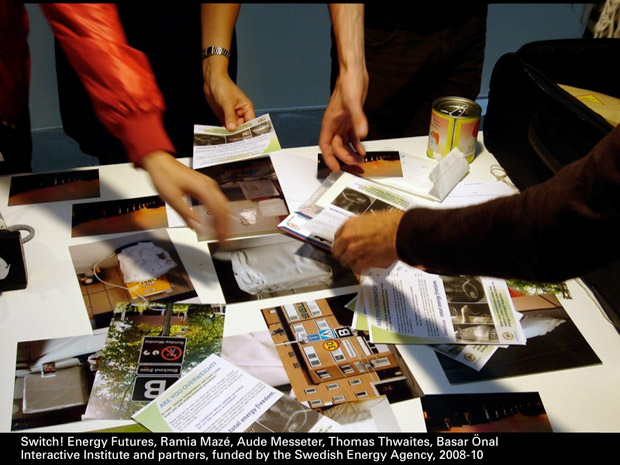Ramia Mazé at Oxford Futures Forum
Föreläsning
Datum och tid
30 maj 2014 kl 09:00 - 31 maj 2014 kl 17:00
Plats och färdväg
Saïd Business School, Oxford University, UK
Ramia Mazé, guest teacher at Konstfack, is 1 of 70 invited international experts to the 4th Oxford Futures Forum on 'Scenarios and Design', to be held in May 2014 at Oxford University, UK. The forum aims to join two established communities of thought and practice – the design research community and the futures scenario planning practice and research community.
The 2014 forum is designed to enable generative dialogue, productive collaboration and deep reflection on the connections between design and futures research. Forums generate lively two-day ‘strategic conversations’ among participants and a vibrant international and interdisciplinary network of leading scholars and practitioners.
On the topic "The Future is Not Empty – Design imaginaries and design determinism", Ramia will speak about the future not as not a destination but a ‘supervalence’, an outside to an experienced present that is necessary to establish critical distance, to imagine and live alternatives. From this perspective, she rethink the forms and politics of design futures, discussing around a series of design examples from her own practice-based research and other’s examples of design fictions and lived utopias.
Abstract of Ramia Mazé's presentation:
"The Future is Not Empty – Design imaginaries and design determinism"
Design has a long history of giving form to cultural imaginaries about the future. Acceptera, the first manifesto of Swedish Modern design, distributed by the publishing arm of the Social Democratic party, evokes in text and image a modern, or future, 'A-Europe', "The society we are building for", versus 'B-Europe', or "Sweden-then". It is a manifesto for development in a predetermined direction, creation on the basis of time, a specific arrow of time leading to a singular socio-political, as well as technological and design, ideal future. Design – as manifesto-like visions of the future, as scenario methods for planning, strategy and foresight, or as 'transition arenas' such as change labs and Living Labs – is increasingly employed in future-oriented governance strategies and 'corporate imagination'.
In the theory of history, and futures, however, there has been a shift from diachronic (linear) thinking, and an argument that causality itself might be understood as an essentially narrative category. I argue that the future is not a destination but a 'supervalence', an outside to an experienced present that is necessary to establish critical distance, to imagine and live alternatives. From this perspective, I rethink the forms and politics of design futures, discussing around a series of design examples from my own practice-based research (Mazé, ed. Switch! Energy Futures, 2013) and other's examples of design fictions and lived utopias (Ericson and Mazé, eds. DESIGN ACT, 2011). Further, I reflect upon the power of design futures in shaping the present. I argue that this requires not only rethinking the forms and politics of design futures, but critical consideration of 'ontological politics', or the political reasons for preferring and enacting one reality over another.
